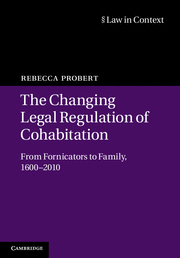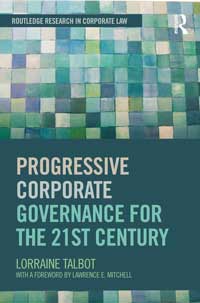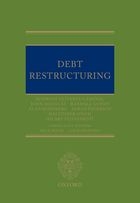Warwick Law School News
Warwick Law School News
The latest updates from our department
New Book: 'Financial Crisis Containment And Government Guarantees' John Raymond LaBrosse , Rodrigo Olivares-Caminal , Dalvinder Singh
Financial Crisis Containment and Government Guarantees analyses the international community’s commitment to forging enhanced, well thought-out, mechanisms for containing systemic risks in the context of a highly interconnected global financial framework which incorporates ongoing financial innovation.
While use of government guarantees is a central theme, the book also analyses the roles played by prudential regulators, central banks, deposit insurers and treasuries in dealing with the crisis. The book examines how governments, central banks, regulators and deposit insurance agencies have worked together to contain the global financial crisis. Additionally, it focuses on efforts to overcome ongoing obstacles, as well as the most important proposals to improve safety nets, both at the national level and internationally.
New Book: Kimberley Brownlee "Conscience and Conviction: The Case for Civil Disobedience" (Oxford Legal Philosophy)

The book shows that civil disobedience is generally more defensible than private conscientious objection.
Part I explores the morality of conviction and conscience. Each of these concepts informs a distinct argument for civil disobedience. The conviction argument begins with the communicative principle of conscientiousness (CPC). According to the CPC, having a conscientious moral conviction means not just acting consistently with our beliefs and judging ourselves and others by a common moral standard. It also means not seeking to evade the consequences of our beliefs and being willing to communicate them to others. The conviction argument shows that, as a constrained, communicative practice, civil disobedience has a better claim than private objection does to the protections that liberal societies give to conscientious dissent. This view reverses the standard liberal picture which sees private 'conscientious' objection as a modest act of personal belief and civil disobedience as a strategic, undemocratic act whose costs are only sometimes worth bearing.
The conscience argument is narrower and shows that genuinely morally responsive civil disobedience honours the best of our moral responsibilities and is protected by a duty-based moral right of conscience.
Part II translates the conviction argument and conscience argument into two legal defences. The first is a demands-of-conviction defence. The second is a necessity defence. Both of these defences apply more readily to civil disobedience than to private disobedience. Part II also examines lawful punishment, showing that, even when punishment is justifiable, civil disobedients have a moral right not to be punished.
Oxford Legal Philosophy publishes the best new work in philosophically-oriented legal theory. It commissions and solicits monographs in all branches of the subject, including works on philosophical issues in all areas of public and private law, and in the national, transnational, and international realms; studies of the nature of law, legal institutions, and legal reasoning; treatments of problems in political morality as they bear on law; and explorations in the nature and development of legal philosophy itself. The series represents diverse traditions of thought but always with an emphasis on rigour and originality. It sets the standard in contemporary jurisprudence.
New Book: Rebecca Probert "The Legal Regulation of Cohabitation" (Cambridge 2012)

The Legal Regulation of Cohabitation examines hundreds of reported and unreported cases, as well as legislation, policy papers, debates in Parliament to show how the legal treatment of cohabiting couples has been transformed over the past four centuries – from punishment as fornicators in the seventeenth century to eventual acceptance as family in the late twentieth century.
Alongside this, drawing on thousands of newspaper reports and magazine articles, it charts how the language used to refer to cohabitation has changed over time – from the denunciatory phrases of the early part of the period, through the namelessness of cohabitation in the nineteenth century, wartime ‘unmarried wives’, the ‘living in sin’ of the mid-twentieth century, the ‘stable illicit unions’ of the Law Commission’s 1966 report on divorce, the ‘common-law wives’ of the 1970s, the ‘live-in lovers’ of the 1980s and early 1990s to the ‘partners’ of today.
These different terms both influenced and were influenced by policy debates and public perceptions of cohabitation. Law and language were also intertwined with the third key theme of the book – a reassessment of the incidence of cohabitation in past times. Having carried out innovative cohort studies of over 5,000 couples, the book provides new and more accurate evidence of the extent (or rather the rarity) of cohabitation in earlier centuries. For more information go to: http://www2.warwick.ac.uk/knowledge/culture/cohabitation/
New Book: Lorraine Talbot 'Progressive Corporate Governance for the 21st Century' (Routledge 2012)

Progressive Corporate Governance for the 21st Century is a wide ranging and ambitious study of why corporate governance is the shape that it is, and how it can be better. The book sets out the emergence of shareholder primacy orientated corporate governance using a study of historical developments in the United Kingdom and the United States. Talbot sees shareholder primacy as a political choice made by governments, not a ‘natural’ feature of the inevitable market. She describes the periods of progressive corporate governance which governments promoted in the middle of the 20th century using a close examination of the theories of the company which then prevailed. She critically examines the rise of neoliberal theories on the company and corporate governance and argues that they have had a negative and regressive impact on social and economic development. In examining contemporary corporate governance she shows how regulatory styles as informed and described by prevailing regulatory theories, enables neoliberal outcomes. She illustrates how United Kingdom-derived corporate governance codes have informed the corporate governance initiatives of European and global institutions. From this she argues that neoliberalism has re-entered ex command transition economies through those United Kingdom and OECD inspired corporate governance Codes over a decade after the earlier failed and destructive neoliberal prescriptions for transition had been rejected. Throughout, Talbot argues that shareholder primacy has socially regressive outcomes and firmly takes a stand against current initiatives to enhance shareholder voting in such issues as director remuneration. The book concludes with a series of proposals to recalibrate the power between those involved in company activity; shareholders, directors and employees so that the public company can begin to work for the public and not shareholders.
New Book: John Snape 'The Political Economy of Corporation Tax: Theory, Values and Law Reform' (Hart 2011)
Excellent technical writing on corporation tax abounds but it tends to be inaccessible to public lawyers, political theorists and political economists. Although recent years have seen not only an explosion in public law scholarship, but also a reawakening of interest in interpretative political theory and political economy, the potential of these perspectives to illuminate the corporation tax debate has remained unexplored. In this important work, John Snape seeks to reconcile these disparate strands of scholarship and to contribute to a new way of understanding and conceptualising the reform of the law relating to corporate taxation. Drawing on important developments in public law scholarship, the study combines elements of political theory and political economy. It advances a new interpretation of corporation tax law as an instrument of rule, through the maximisation of a nation’s economic potential. Snape shows how corporate taxation belongs at the centre of any discussion of economic globalisation, not only because of the potential of national tax systems to influence inward investment decisions but also because of the potential of those decisions to shape the public interest that those tax systems might embody. Following public law and politics models, the book looks afresh at the impact of Britain’s political institutions, of the processes of its representative government and of the theory that moulds and orders the values that the corporation tax code contains. This is a timely exploration of cutting-edge issues of public policy.
New Book: Victor Tadros 'The Ends of Harm: The Moral Foundations of Criminal Law' (OUP, 2011)
Victor Tadros 'The Ends of Harm: The Moral Foundations of Criminal Law' (OUP, 2011)
Every modern democratic state imprisons thousands of offenders every year, depriving them of their liberty, causing them a great deal of psychological and sometimes physical harm. Relationships are destroyed, jobs are lost, the risk of the offender being harmed by other offenders is increased and all at great expense to the state. How can this brutal and costly enterprise be justified? Traditionally, philosophers answering this question have argued either that the punishment of wrongdoers is a good in itself (retributivism), or that it is a regrettable means to a valuable end, such as the deterrence of future wrongdoing, and thus justifiable on consequentialist grounds. This book offers a critical examination of those theories and advances a new argument for punishment's justification, calling it the 'duty view'. On this view, the permission to punish offenders is grounded in the duties that they incur in virtue of their wrongdoing. The most important duties that ground the justification of punishment are the duty to recognize that the offender has done wrong and the duty to protect others against wrongdoing. In the light of these duties the state has a permission to punish offenders to ensure that they recognize that what they have done is wrong, but also to protect others from crime. In contrast to other justifications of punishment grounded in deterrence, the duty view is developed in the light of a non-consequentialist moral theory: a theory which endorses constraints on the pursuit of the good. It is shown that it is normally wrong to harm a person as a means to pursue a greater good. However, there are exceptions to this principle in cases where the person harmed has an enforceable duty to pursue the good. The implications of this idea are explored both in the context of self-defence, and then in the context of punishment. Through the systematic exploration of the relationship between self-defence and punishment, the book makes significant progress in defending a plausible set of non-consequentialist moral principles that justify the punishment of wrongdoers, and marks a significant contribution to the philosophical literature on punishment.
New Book: Dalvinder Singh co-edits 'Managing Risk In The Financial System' (Elgar 2011)
John Raymond LaBrosse , Rodrigo Olivares-Caminal , Dalvinder Singh (eds) Managing Risk In The Financial System
Managing Risk in the Financial System offers fresh and essential reading on the Global Financial Crisis. The coverage is unique in its scope – offering a close examination of fundamental concepts such as the nature of systemic risk; consideration of the impact of systemic crisis on both private institutions and national governments; and critique of popular reform proposals such as living wills, resolution funds and capital adequacy. Contributors to this volume are internationally recognized experts who offer sharp assessments of both the causes of the crisis and the proposed reforms.’
– Heidi Mandanis Schooner, Columbus School of Law, US
‘Incisive, authoritative and thoughtful, this important and timely collection of papers exploring the unresolved issues left by the recent global financial turmoil, will undoubtedly shape the policy responses to come. Interdisciplinary in approach and wide-ranging in jurisdictional scope, it draws together influential commentators, practitioners and regulators, to create a new milestone in the search for the fundamentals of a more stable global financial system.’
– Eva Lomnicka, King’s College London, UK
‘This book contains a large number of chapters, nearly 30 in all, by acknowledged experts on various aspects of the recent financial crisis. Whichever aspect of this crisis may interest you, such as bank taxes, deposit insurance, TBTF and how to respond, cross-border issues, and many, many others, you will find chapters that are both authoritative and stimulating in this collection. The editors are to be congratulated not only on their selection of authors but also on the speed with which they have taken them from conference presentation to book chapter.’
– Charles Goodhart, London School of Economics, UK
Managing Risk in the Financial System makes important and timely contributions to our knowledge and understanding of banking law, financial institution restructuring and related considerations, through the production of an innovative, international and interdisciplinary set of contributions which link together the law and policy issues surrounding systemic risk and crisis management.
The recent financial crisis has exposed both the banking industry and financial system safety-net players in many countries to a considerable level of distress as well as economic and reputational damage. These circumstances have heightened the need for policymakers to consider remedial measures under a broad umbrella that encompasses inter alia prompt corrective actions, early closure of distressed entities, deposit insurance, bail-outs, state-aid, bank resolution and restructuring techniques. These essays provide an important contribution to research in this area, at a crucial time in the debate around the future financial industry.
This unique and detailed volume should be of considerable interest to students of law, economics and finance, law practitioners and policymakers in central banks and ministries of finance. Law, business and finance faculties will benefit from having this book in their collections, as will deposit protection agencies and regulatory agencies.
New Book: Dalvinder Singh co-authors 'Debt Restructuring' (Oxford 2011)

Debt Restructuring, Oxford University Press, 2011, Rodrigo Olivares-Caminal, John Douglas, Randall Guynn, Alan Kornberg, Sarah Paterson, Dalvinder Singh, and Hilary Stonefrost, Edited by Nick Segal and Look Chan Ho
520 pages | 246x171mm
978-0-19-957969-3 | Hardback | 14 April 2011
Price: £155.00
Alan Norrie's latest book Dialectic and Difference: Dialectical Critical Realism and the Grounds of Justice is jointly awarded the Cheryl Frank Memorial Prize.
Alan Norrie's Dialectic and Difference: Dialectical Critical Realism and the Grounds of Justice (Routledge, 2010) was jointly awarded the Cheryl Frank Memorial Prize for 2010. The prize is awarded for the year's best and/or most innovative new writing in or about the tradition of critical realism.
The Committee state that Dialectic and Difference expounds and develops dialectical critical realism and brilliantly demonstrates how it trumps the irrealism of the Western philosophical tradition in general and poststructuralism in particular. It makes a significant contribution to critical realist ethical theory.
The co-winner was Christian Smith for What is a Person? Rethinking Humanity, Social Life, and the Moral Good from the Person Up (University of Chicago Press, 2010)
Rebecca Probert publishes timely book on the marriage law of England.

The laws which govern the marriages of the British royal family have led to heartbreak, farce and confusion, and are unfit for the twenty-first century. In an era that values human rights and free choice, there is little certainty over questions as fundamental as the effect of marrying a Roman Catholic, or of marrying without the Queen's consent. Question marks still hang over the legal basis for royal civil marriage. Obscure acts of Parliament have threatened to render members of the royal family illegitimate and prevented others from following their hearts. Drawing on a wide range of sources including once-secret files in the UK's National Archives, The Rights & Wrongs of Royal Marriage recounts episodes from the eighteenth century right down to the present day that would not look out of place in Yes, Minister or The Mikado. Professor Rebecca Probert, the leading authority on the marriage law of England and Wales, is as characteristically clear when explaining the complexities of royal marriage law as she is in her other groundbreaking studies. Her prose is concise and elegant, and full of historical anecdotes that will have royalists and republicans alike laughing aloud and wide-eyed with astonishment.
New Book: Hugh Beale Co-authors European contract casebook
European Contract casebook Cases, Materials and Text on Contract Law Beale, Fauvarque-Cosson, Rutgers, Tallon and Vogenauer, (2nd ed, Hart Publishing, 2010)

